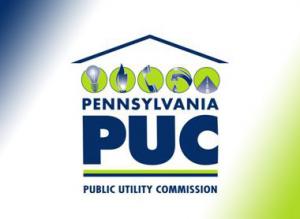Pennsylvania Outlines Regulatory Program for Water Systems

In a tentative decision, the Pennsylvania Public Utility Commission has disclosed how it intends to oversee future water, wastewater, and storm water services provided by entities created by Pennsylvania cities of the second class — specifically, the Pittsburgh Water and Sewer Authority (PWSA). The ruling proposes methods for rate making, tariff approval, compliance plans, infrastructure improvements, consumer protections, and other implementation issues. The commission asked that interested parties and stakeholders submit comments and input on the commission’s plans.
As background, the commission explained that for the last seven decades, it has had no regulatory authority over municipal water and sewer services. It elaborated that municipally provided services had been removed from the commission’s jurisdiction by virtue of the Municipal Authorities Act, promulgated some 70 years ago.
But last year, the commission said, the state legislature passed a law granting the commission authority to regulate the provision of water, wastewater, and storm water service by certain municipal entities created by Pennsylvania cities of a certain size. At the present time, however, Pittsburgh is the only city that meets that standard. The commission stressed that as it works toward implementing its new oversight duties, existing PWSA rates and terms of service will remain in place as a temporary measure, until such time as the commission has fully reviewed and approved a rate filing from Pittsburgh. According to the commission, PWSA, at least outwardly, will function much like other public utilities regulated by the commission. The primary difference will be that the law provides that PWSA, as a municipal utility, will still retain the ability to access avenues of financing unique to governmental agencies. That is, the commission said, Pittsburgh will still be allowed to take advantage of current “municipal financing vehicles and the covenants on which those vehicles depend.”
The commission noted that the change to commission oversight may entail modifications in the manner in which consumer complaints are handled. On that point, the commission commented that it has already proposed that it begin accepting complaints from PWSA customers — either as informal complaints submitted to the commission’s Bureau of Consumer Services or as formal complaints filed directly with the commission.
The commission related that in the past, it has employed various ratemaking methodologies to develop just and appropriate rates for regulated public utilities, the most common being the rate base/rate-of-return approach to rate making, which is usually relied upon by large investorowned- utilities. But the commission found that a different method might be best for PWSA. It elaborated that it had utilized an alternative basis known as the cash flow rate-making method for Philadelphia Gas Works, a rate-making scheme it thought should be considered for Pittsburgh. The commission added that municipalities often account for investments and depreciation differently from regulated investor-owned utilities, in that municipal entities tend to focus on debt service coverage sufficient to meet bond obligations. As a result, the commission cautioned that reconciliation of a cash flow revenue requirement and rate-making methodology with PWSA’s future requirements for long-term infrastructure improvement plans and associated distribution system improvement charge mechanisms is also an important issue to be determined. Re Pittsburgh Water & Sewer Authority, M-2018-2640802 (water), M-2018- 2640803 (wastewater), Jan. 18, 2018 (Pa.P.U.C.).



